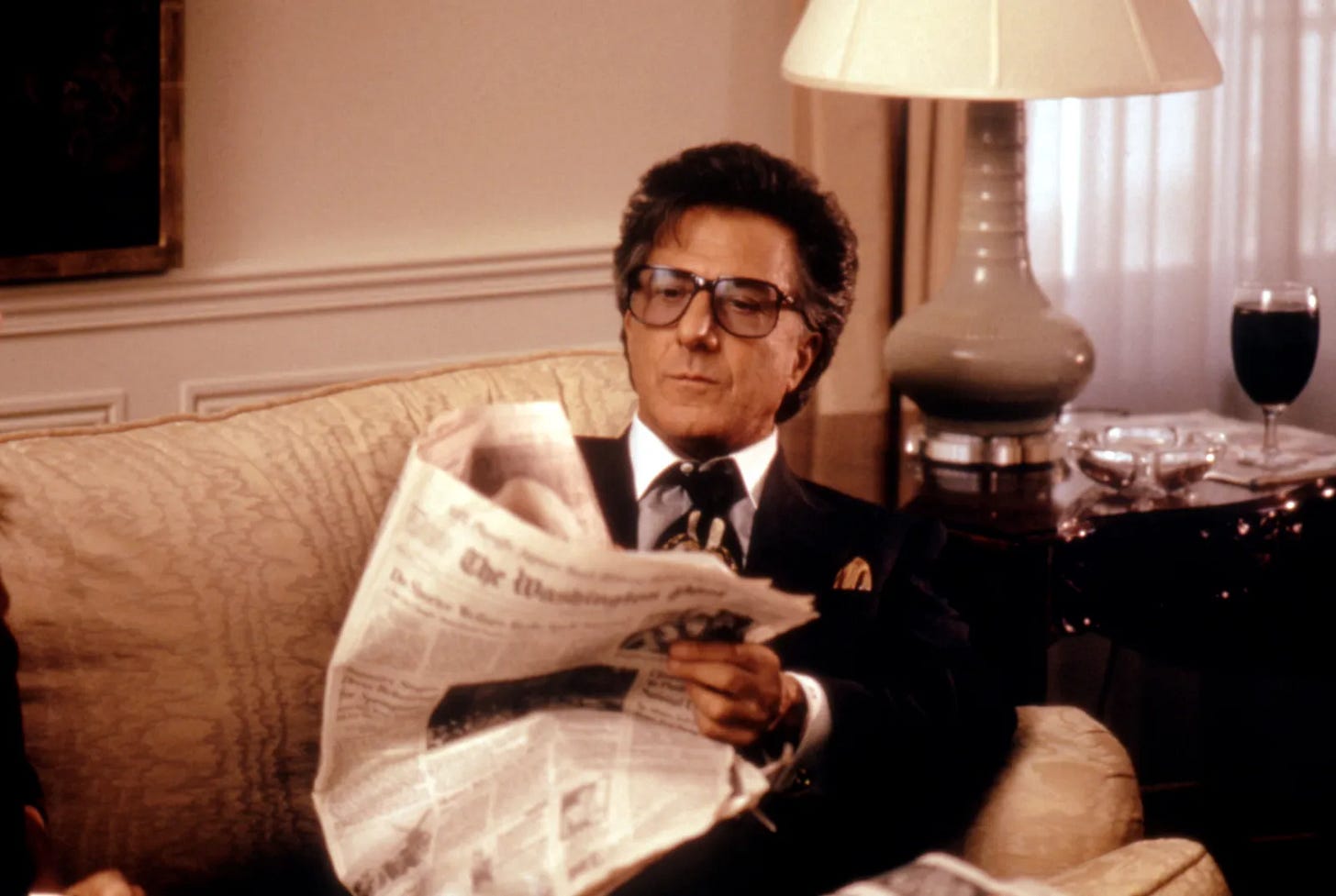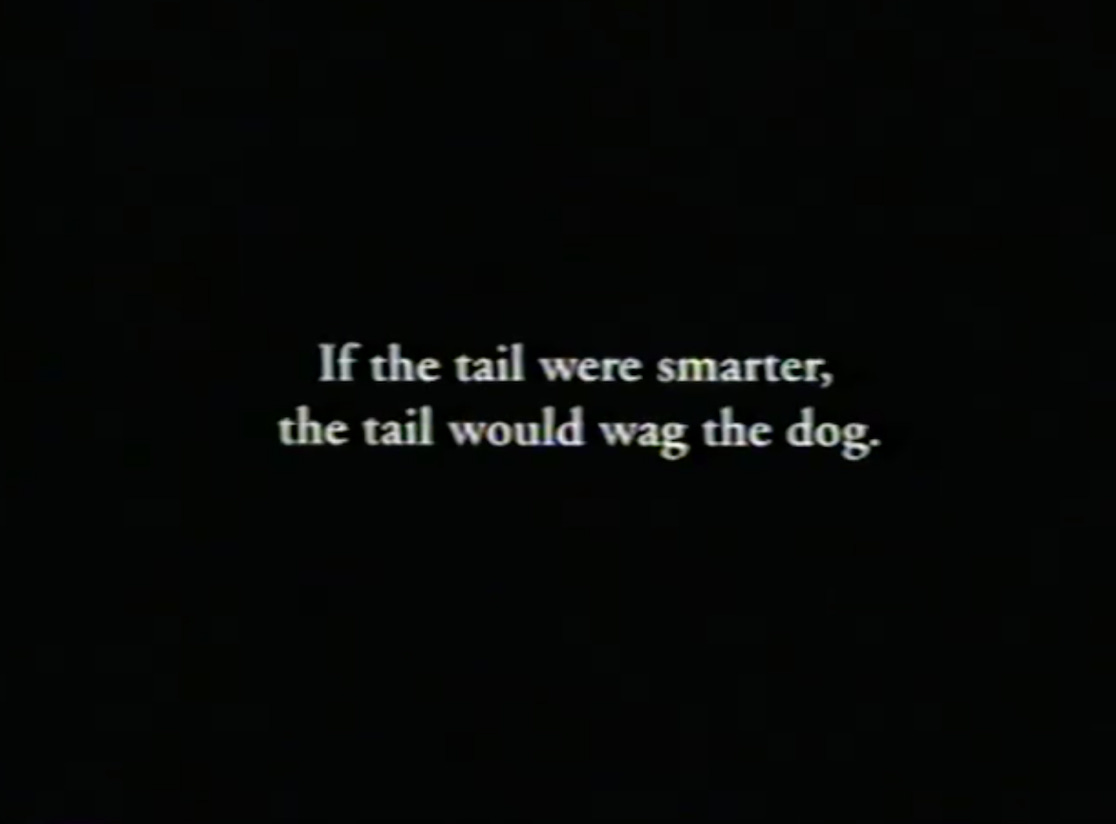What difference does the truth make?
“There’s always been a relationship between Hollywood and politics and we wanted to have some fun with it but as proud as I am of the movie, it makes me very sad that you couldn’t even make up some of the shit that’s going on right now.”
—Jane Rosenthal, producer of Wag the Dog (1997), in Vanity Fair.
Last week, I touched on some of my issues with Adam McKay’s Vice. Are movies like this effective or are they just Oscar bait? While Hollywood and politics (and propaganda) go hand in hand, more effective political satires don’t rely on their truthiness or the past to make a point.
Barry Levinson’s Wag the Dog was not “based on true events”; it divined them. Adapted from Larry Beinhart’s American Hero, screenwriter David Mamet added in a presidential sex scandal and “the minions of a president” — an adviser (Anne Heche), a spin doctor (Robert De Niro) and a Hollywood producer (Dustin Hoffman) — who stage a fake war with Albania to distract the public.
The film's prescience makes it more effective. Eerily enough, a month after its release, the Clinton scandal broke. And a year later — a few days before his impeachment — Clinton started bombing Iraq.
***
Politicians start wars but never fight them. They employ spin doctors who can manufacture enemies, weapons of mass destruction and consent. Either sway, civilians end up paying for it, either with their lives (as casualties) or their paycheques (as taxpayers).
I tire of “all presidents are war criminals anyway,” because they never face any consequences and end up rewarded with Spotify (or Audible) deals. When I was writing about Michael Ritchie’s The Candidate (1972), I came across Vincent Canby’s review of the film, where he explained the “Catch-22 of American politics”:
“The best man should lose, or he isn’t the best man…no good man can win without either being hopelessly corrupted or turned into a bewildered cipher.”
The Candidate is a cautionary tale for politicians: an environmental lawyer’s platform gets watered down as his production value goes up. He’s eventually polished, camera-ready and generic. Someone else writes his speeches and he reads them off teleprompters. By the time he realizes this, it’s too late. All he can do is laugh.
***
What bothers me about Vice, The Big Short and Don’t Look Up, is that they keep urging the audience to pay attention. They never delve into the larger, hidden systems that maintain this status quo and keep the same politicians who think the same way in office. We don’t notice this because we can’t even access it. Documents remain classified. Spin doctors distract us. Hollywood is even complicit in propaganda campaigns. Any information available to the public in unclassified documents (like the Senate Committee’s Report on Torture) is mainly redacted and incomprehensible.
***
At one point in Wag the Dog, Hollywood producer Stanley Motss (Dustin Hoffman) is asked whether he votes for the president. “No,” he replies, “I always vote for the Academy Awards but I never win.”













